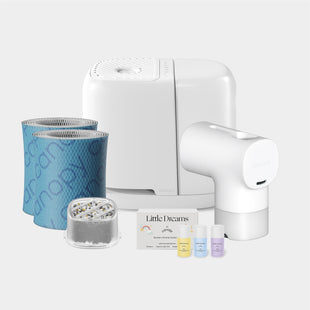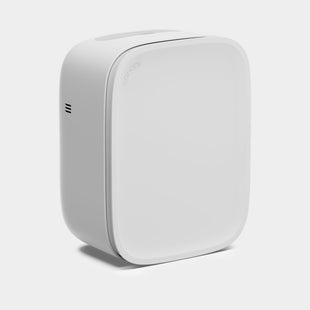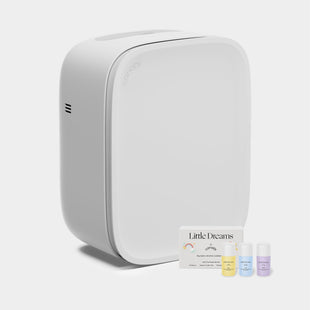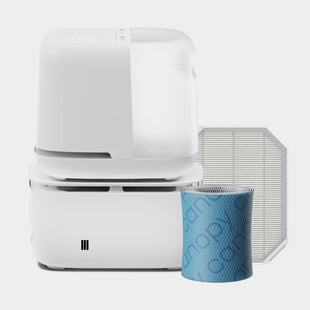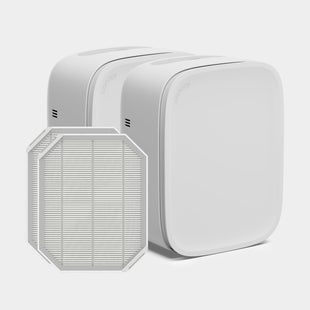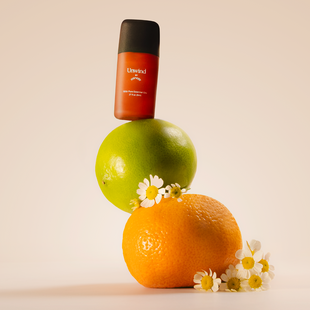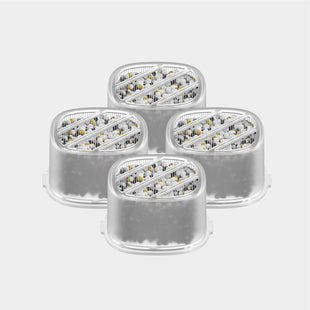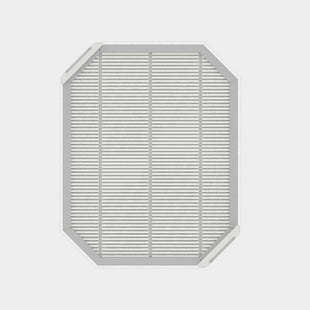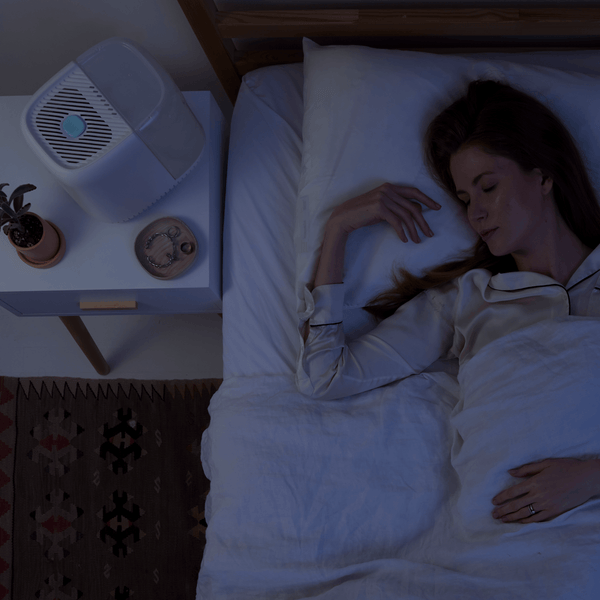A humidifier is a great wellness tool with ample health benefits to bat. Maybe you purchased a brand new humidifier for a baby nursery or for your partner who suffers from seasonal allergies or mild asthma.
Whatever your motivation for introducing a humidifier into your home space, it is helpful to know when you should use your humidifier for optimal results. More specifically, when to use a humidifier for adults to increase efficacy? And when to use a humidifier for a baby to prevent congestion and shallow breathing?
We cover these topics and more in this blog post; in addition, we include a master list of humidifier benefits for your reference including links to additional articles to be found on the subject matter.
When to Use a Humidifier for Adults and Older Children
Adults and older children can hugely benefit from incorporating a humidifier into a living space or common area. We will cover the benefits of humidifier use for adults, children and humidifiers for a baby, below. But, when is it necessary to actually use your humidifier?
Using a Humidifier During the Winter Months

The frigid, cold air that bites your nose and wind-chaps your skin during the winter months is notoriously dry. A mere 5 minutes outside and your lips crack, your nose gets crusty, and your hands are dryer than the Sahara Desert.
The dry air of the winter months can seriously dehydrate your skin, your hair, your nails, and everything else it touches. Inside the home is hardly a reprieve… To beat the freezing temperatures, we blast central heating to stay comfortable through the night and often into the late morning hours. While the furnace makes winter life bearable, it has a fatal flaw: it is notoriously dry! This is why your lips stay chapped, your nose remains crusted, and your hands and feet start to flake or peel from dehydration as the long, dark winter continues.
Indoor humidity levels can plummet from the optimal range of 40% to 60% down to the low 20’s and high teens during the winter months. In order to restore much needed moisture to your home air, you need to incorporate a humidifier into your winter toolbox, especially throughout the night when your body recovers and repairs itself.
Do You Need a Humidifier in the Summer?
Using a humidifier during the winter months seems like a no-brainer: dry, winter air needs moisture, stat. But, do you need a humidifier during the summer months, too, when the humidity levels outdoors make your hair frizz and your skin sop with sweat?
Yes, absolutely!

The elevated humidity levels in the summer months do not necessarily translate into elevated humidity levels indoors. To beat the heat, we often pump air conditioning through our home all day and night to avoid fatigue, heat-invoked dizziness, and more.
Air conditioning draws external air into your home, condensing moisture on metal coils and releasing the chilled, dry air through your vents. This dry air is then recycled through the HVAC system over and over again, zapping every last drop of moisture as the cycle continues. The result is dehydrated home air despite the higher than ideal humidity levels outdoors.
Air conditioning is not the only reason you should introduce a humidifier into your home during the summer months. Excess summer sun exposure and frequent dips in a chlorinated pool can dehydrate your skin and hair. Add your home AC into the mix, and you might just turn into a prune!
When to Use a Humidifier for a Baby
A humidifier for baby’s room is becoming more and more popular as the ample benefits of hydrated air for general health and wellness become mainstream.
If you have purchased a humidifier or are in the market for a humidifier for baby, you may be wondering when to use a humidifier for a baby: when they inevitably get sick? Just during the winter months? Every night while they slumber?

Babies, particularly newborns, come with a lot of congestion, runny noses… The whole gambit. Nasal congestion or loud breathing through the night is often the result of an immature respiratory system or a blocked nasal passage as a result of breastmilk, formula, or amniotic fluid trapped in the nose. Most often, nasal congestion in infants is nothing of major concern. Note: if your child is having difficulty breathing, exemplifies chest congestion or wheezing, if they have a fever above 100.4, or any other alarming symptom, you should call your doctor immediately.
As with adults, it is best to incorporate a humidifier during both the winter months and summer months or when your home hygrometer reads below 40%. You can also introduce a humidifier for baby when you notice signs of minor nasal congestion. This can help your infant breath more easily through the night since the increased moisture will lubricate the nasal passages helping to release any obstructions.
Cool Mist vs. Warm Mist Humidifiers for Babies
Aside from determining when to use a humidifier for a baby, you may also be curious as to whether you should incorporate a cool mist or a warm mist humidifier in your baby’s nursery.
While a warm mist humidifier sounds both cozy and soothing to small nostrils, a cool mist humidifier is the recommended humidifying device for small infants and children. The American Academy of Pediatrics (AAP) considers warm mist humidifiers a burn hazard as a result of the hot, boiling water that brews in the device water tank. Curious hands and sticky fingers can end up on the cord of the warm mist humidifier and the boiling water can burn your small bean’s face, hands, or any other part of their body exposed to the hot water.
A cool mist humidifier is the safest option for your baby or small child. Canopy Humidifier is a mist-free, no mess humidifier designed with proprietary technology that actually stops mold and bacteria from growing in the water tank. The compact size of the Canopy Humidifier is perfect for a small nursery, and the dishwasher safe components make cleaning a breeze. In addition, Canopy partnered with the parenting experts at Lalo to develop a custom line of kid friendly essential oils that are compatible with Canopy Humidifier’s Diffuser Puck allowing your little one to breathe easy and comfortably all night long.

The Health Benefits of Humidifiers
Whether you use a humidifier for your baby, yourself, or your partner, there are ample benefits to increased moisture levels in your home.
Regular use of a humidifier (not just on the onset of dry air side effects) will dramatically improve your overall health, the overall health of anyone who lives in your home space, the health of your home, and even the health of your houseplants!
The benefits of regular humidifier use include, but are not limited to:
- Relieve runny nose or nasal congestion
- Relieve dry, itchy, or scratchy throat
- Relieve dry cough
- Improve cold and flu symptoms
- Kills airborne viruses and bacteria
- Improves symptoms of seasonal allergies
- Improves symptoms of mild to moderate asthma
- Improve the health and longevity of your houseplants
- Improves mild congestion in infants and babies
- Improves dry, itchy skin and lips and reduces the signs of visible aging
- Hydrates the hair shaft and scalp
- Dramatically improves static electricity buildup in your home
- Improves health and overall appearance of wood furniture and wood flooring









